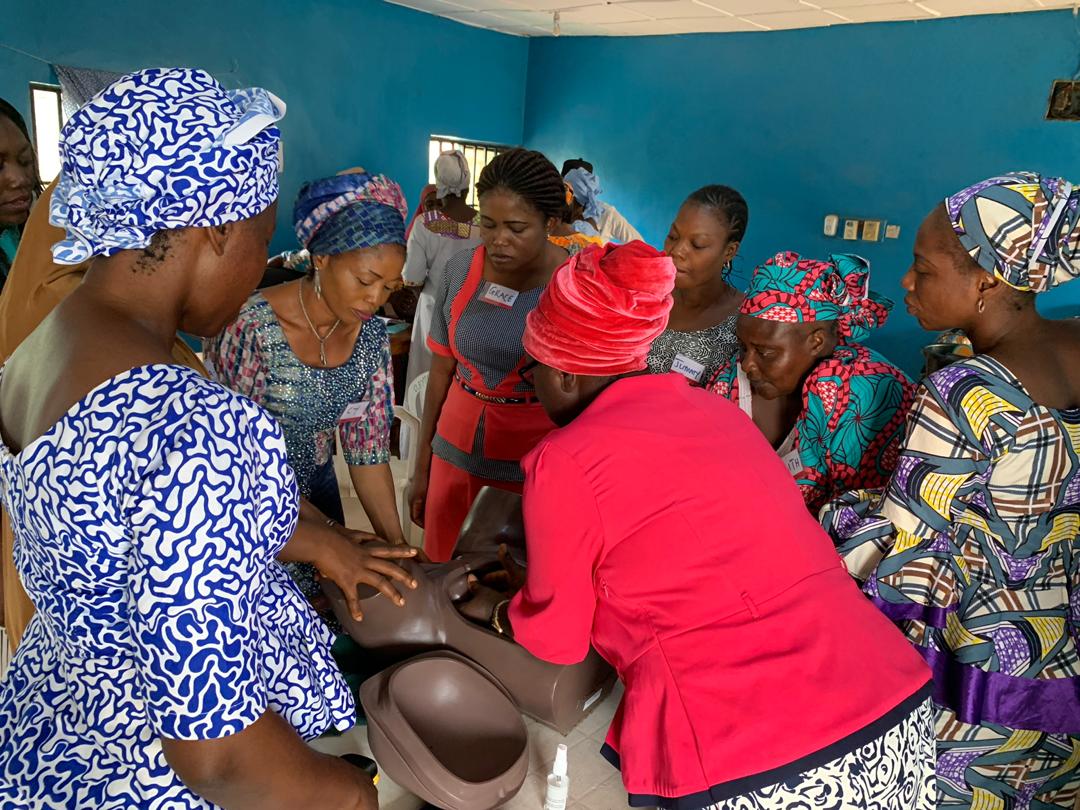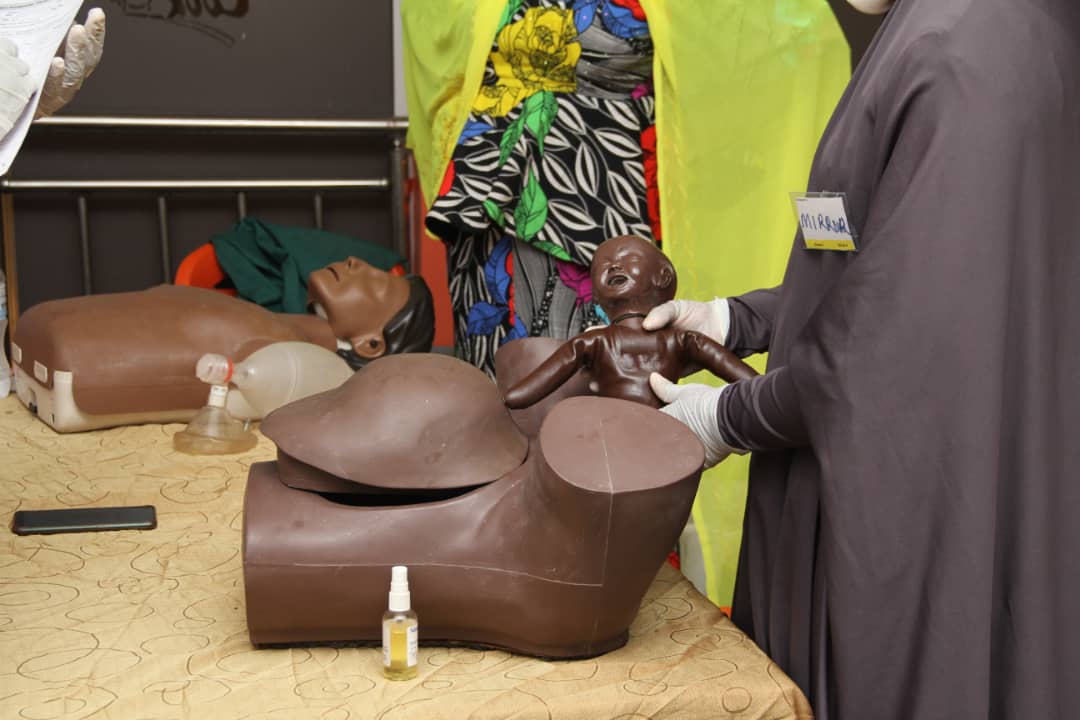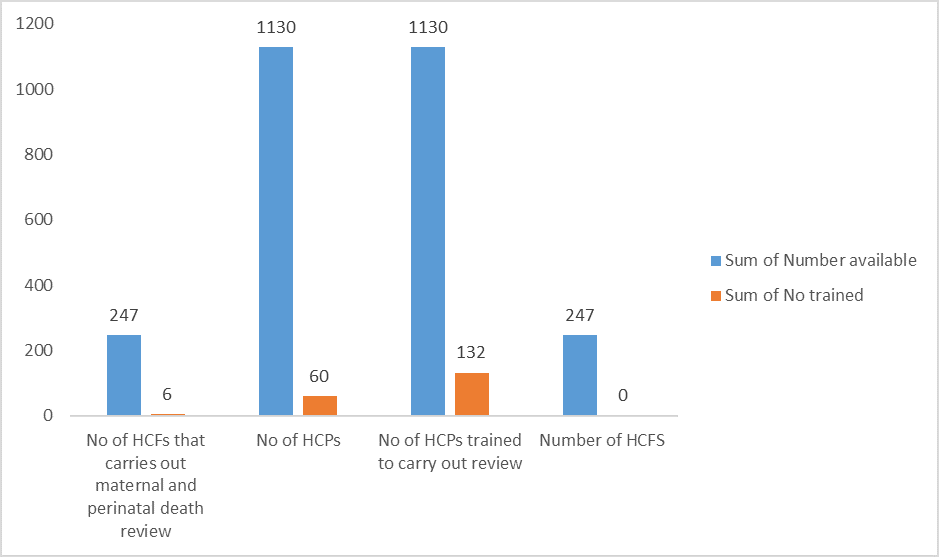Availability and Quality of Maternal and Newborn Care in Kwara State, Nigeria
The Emergency Obstetrics & Newborn Care (EmONC) Project Collaboration of Johnson & Johnson (JnJ), the Liverpool School of Tropical Medicine (LSTM) and the Wellbeing Foundation Africa (WBFA)

The Wellbeing Foundation Africa (WBFA), the Liverpool School of Tropical Medicine (LSTM), and Johnson & Johnson jointly launched the Emergency Obstetric & Newborn Care (EmONC) project in partnership with the Kwara State Ministry of health in 2015 to improve maternal and neonatal health by building capacities of healthcare workers in basic and comprehensive emergency obstetrics and newborn care (BEmONC and CEmONC) respectively with the potential to reduce maternal mortality by 15% and stillbirth rates by 20% in the state.
The project was a ‘Skills and Drills’ training package for Emergency Obstetric Care and early Newborn Care (EmONC) in Kwara State, Nigeria. Six of the 16 Local Government Areas in Kwara State were found in a 2013 report by the African Journal of Reproductive Health (2013, Mar; 17 (1):41-8) to have not met UN indicators on emergency obstetric care.
To combat this service provision gap, LSTM’s Centre for Maternal and Newborn Health (CMNH)’s the innovative programme has the potential to reduce maternal and newborn mortality by ensuring the improved quality and availability of skilled birth attendants (SBA), emergency obstetric care, and early newborn care (EmONC) with a measurable increase in knowledge and skills of healthcare providers. The training programme included support to pre-service midwifery institutions to improve the competency-based EmONC training components of their curriculum.
The programme covered 51 Health Care Facilities in 16 LGAs in Kwara state (Including Ilorin-West, Ilorin-East and Ilorin-South, Irepodun, Offa, Asa, Moro, Patigi, Oyun, Ekiti, Isin, Oke Ero, Baruten, Kaiama and Edu) in Kwara state

The programme was scaled up to 27 other facilities in the remaining 9 LGAs to consolidate the impact in the first phase, thus benefiting the entire State. At the end of the last phase of the project, healthcare workers in all 48 HCF in Kwara State were supported to provide Life-Saving Skills Training and emergency obstetrics and newborn care services.
In 2018, as part of its national advocacy on the EmONC programme, WBFA supported the UNFPA-donated simulation skills laboratory at the School of Nursing and Midwifery Gwagalada, Abuja, with a donation of the digital skills computer room and laboratory, and conducted training sessions in EmONC Skills for NANNMS and Council of Nursing and Midwifery. WBFA also led NCNM Nigeria and NANNMS and UNFPA on a courtesy call to the President of the Senate, presenting the Midwifery Services Framework of ICM, and WHO AFRO Nursing and Midwifery Curriculum which recommended EMONC and simulation skills modules as pre-service training requirements.
The training programme included support to pre-service midwifery institutions to improve the competency-based EmONC training components of their curriculum. The programme will include in-service training for 80-100% of Midwives, Doctors and Community Health Extension workers who provide maternity services in the state’s public sector hospitals, setting up skills labs in three general hospitals, and upgrading the capacity of one skills lab in a pre-service midwifery institute.
Having worked together since 2011, Johnson & Johnson and the LSTM chose to work with WBFA based on the strength of their organisational capacity, reputation as a global advocate for maternal, newborn and child health (MCNH), and midwifery services, as well as WBFA’s Founder-President Toyin Saraki’s position as Global Goodwill Ambassador for the International Confederation of Midwives (ICM), and strong relationship with the Nigerian Midwifery Association.
MAIN ACHIEVEMENTS
The EmONC program was aimed at increasing the availability and quality of care for mothers and babies at selected HCFs in 16 LGAs in Kwara State by strengthening the capacity of health care providers in the targeted HCFs to provide quality care and also improving the capacity of hospitals in Kwara State to provide comprehensive emergency obstetric and perioperative care.
Throughout the three phases of implementation, 51 health care facilities were targeted across 16 LGAs in Kwara State and by the end of the third phase of implementation, the 51 facilities targeted were reached according to the number of HCFs selected at each phase by LGA.
Impact
In conclusion, findings from the implementation of the EmONC project in Kwara state show that to reduce maternal and perinatal death, HCWs need to be equipped with the right maternal and child care skills to ensure quality delivery of services in HCFs. This was clearly seen during the implementation as has been stated in this report on the percentage reduction and neonatal death in the State.
WBFA in collaboration with LSTM with great support from J&J ensured that HCPs across the 16 LGAs in the state are equipped with the necessary skills which included but were not limited to ABC of maternal and neonatal resuscitation, labor monitoring with partograph, patient-centered care etc.
Neonatal Deaths Baseline Assessment in the Federal Capital Territory (FCT)

The above chart represents data from the baseline assessment of all the Primary Health care facilities in the six (6) area councils of the FCT. There is a total of 247 primary Health care facilities in FCT with none activated for the delivery of life-saving skills evident in the absence of no skill labs in all of these facilities. A total of 1130 Health care practitioners with only 60 being trained in Maternal lifesaving skills, that is only 5% of the HCPs working in the Primary Health Centres in FCT have been trained in Life-Saving Skills (LSS).
12% of HCPs in PHCs have been trained to carry out periodic maternal and perinatal death reviews, that is 12 in every 100 HCPs in FCT, this is significantly very low. Also, 2% of HCFs carry out perinatal and maternal death reviews, that is 2 in every 100 facilities, this is also very low.
In 2019, there are 73,659 deliveries in PHCs in FCT while experiencing 96 maternal death 2019.
The absence of any form of Emergency Obstetric and Newborn Care & LSS training for healthcare workers in the healthcare services delivery system in the FCT over the years, coupled with Nigeria’s poor maternal mortality rate has highlighted the need to prioritise the following outcomes when the project is launched in the FCT:
- Improve the quality of Emergency Obstetric Care and Newborn Care (EmONC) in an initial forty (40) HCFs across the six Area Councils in the FCT where WBFA has its midwives operational.
- Improve the capacity of Healthcare facilities in the FCT to provide basic and comprehensive emergency obstetric and perioperative care.
- Improve the capacity of healthcare providers in the targeted Healthcare facilities in handling maternal and perinatal death reviews.
- Support the University of Abuja Teaching Hospital to strengthen the capacity of its faculty, to improve the quality of its EmONC teaching, and integrate its components into the curriculum.
- Promote the development of a framework to institute regular and mandatory training of maternity care providers in EmONC.
- Generate evidence through operational research on effective and sustainable approaches to enhance the capacity of healthcare workers to provide quality maternal and newborn care services.
Download the full EMONC report here
